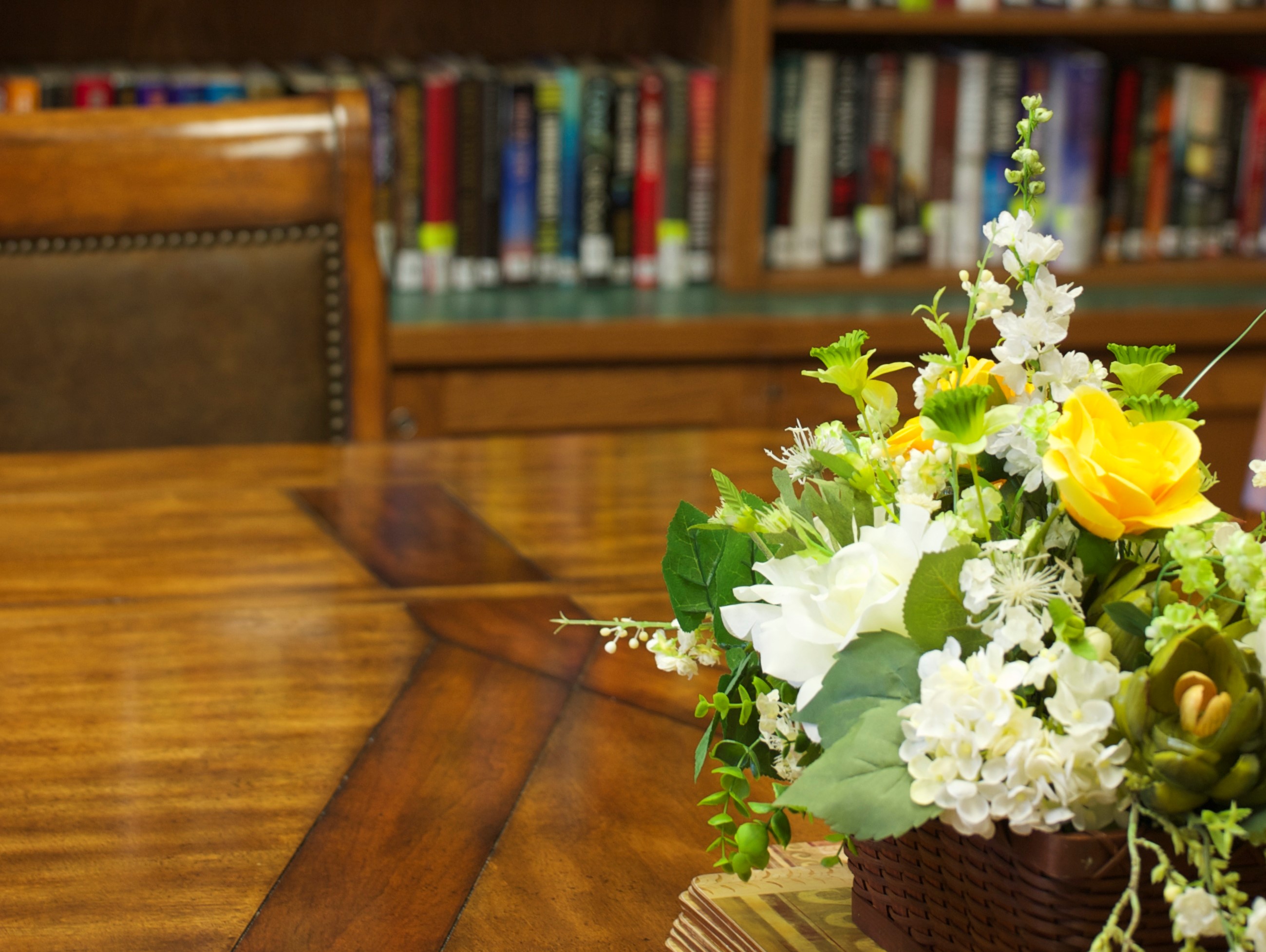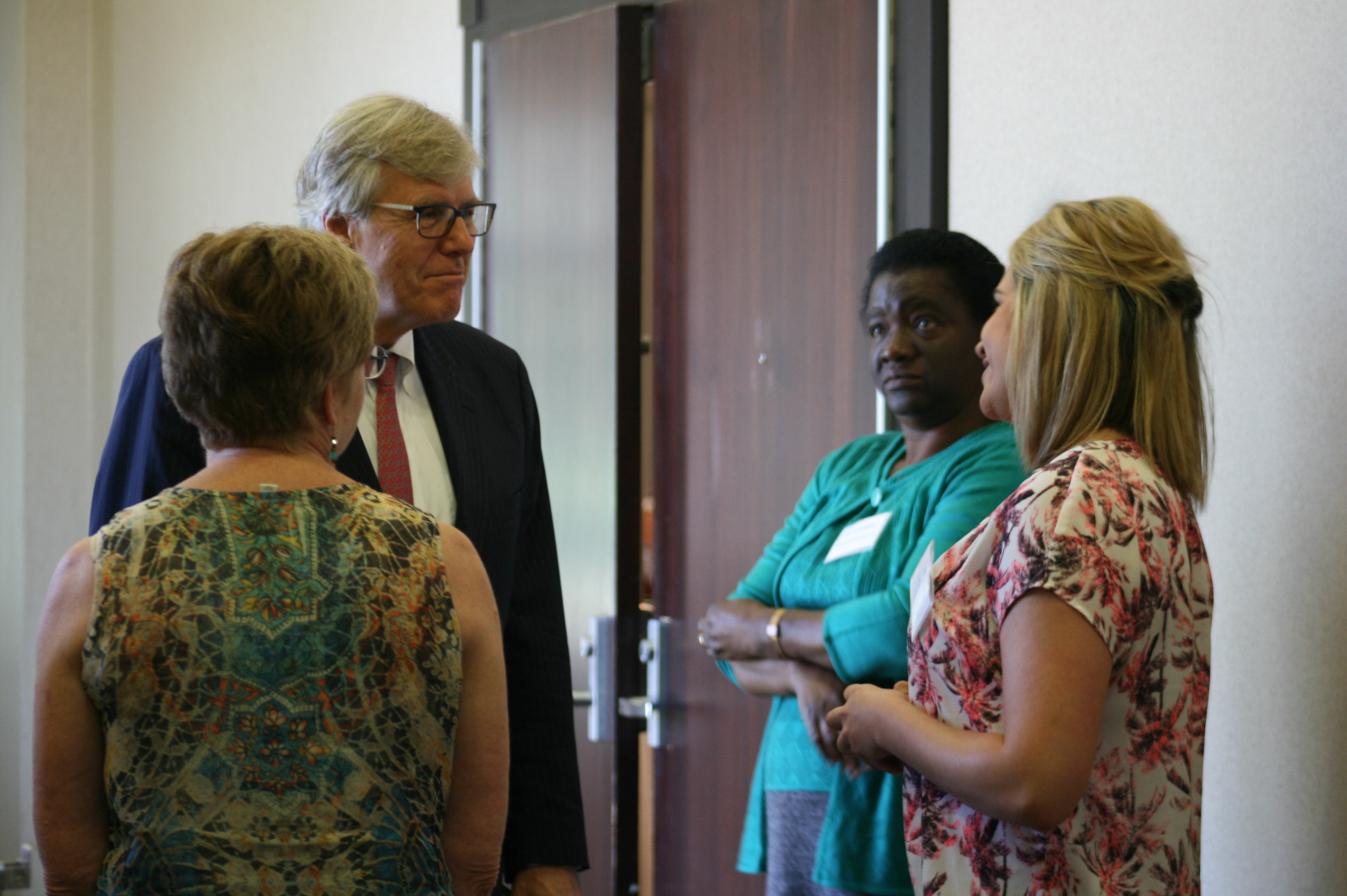Conestoga College students interview residents to go far beyond pathophysiology
When a person is diagnosed with a chronic illness, there are two major factors that affect their well-being: the physical challenges associated with disease management and the psychological pressure the constant worry can inflict.
This spring, Conestoga College practical nursing students studying in the unique Living Classrooms at the Village at University Gates in Waterloo had the opportunity to learn firsthand what effect certain chronic conditions have on long-term care residents who call the village home.
 As part of the Pathophysiology and Pharmacotherapeutics 2 course offered to Level 2 practical nursing students, which explores the acute and chronic challenges present in wound healing, diabetes and musculoskeletal disorders, students were offered extra credit by stepping far beyond the textbook. Paired with a village resident, students conducted interviews and came to realize quickly that no matter the medical condition or the diagnosis and its specific pathophysiology (or affect on the body) there is a real person behind the “patient” and each person is unique in how they approach their lives in the shadow of disease.
As part of the Pathophysiology and Pharmacotherapeutics 2 course offered to Level 2 practical nursing students, which explores the acute and chronic challenges present in wound healing, diabetes and musculoskeletal disorders, students were offered extra credit by stepping far beyond the textbook. Paired with a village resident, students conducted interviews and came to realize quickly that no matter the medical condition or the diagnosis and its specific pathophysiology (or affect on the body) there is a real person behind the “patient” and each person is unique in how they approach their lives in the shadow of disease.
“The information I asked them to gather was more about living with the condition, not the disease itself,” says Sharon Clarke, Contestoga’s coordinator of the personal support worker and practical nursing programs at University Gates. “This is something that’s hard for me to teach, the personal aspects of the disease.”
Ayman Aldin was one of the students who participated in the program, interviewing a resident who lives with the constant juggling act of blood sugar balance and the complications that can arise because of diabetes. Ayman completed the interview before Sharon taught diabetes pathophysiology in class, allowing for Ayman’s understanding of the emotional and mental toll of the condition to be part of the lesson for all his fellow students.
“It’s really interesting to study the disease process to understand it,” Ayman says, “but then to speak to someone living that reality, it really puts things into perspective and gives you a different kind of mindset.”
“When you’re studying the material, you’re doing it in the headspace that ‘I’m going to be taking care of somebody who has this.’ It’s not about going in for the purpose of writing an exam well; you’ve got to know it so you can take care of the person.”
The interviews, Ayman says, helped illustrate the responsibility and the accountability that come alongside the role of nurse and caregiver. As he looks forward towards a future in the sector, no matter the capacity in which he’ll serve, he’ll always remember to look at the person before the disease.
For Sharon and the team with the Living Classrooms, that’s all they can hope for as they train the future leaders of the health care sector, and they’re thankful the University Gates residents can play such an important role in this real life training.
- Previous
- View All News
- Next



























































































































































































































































































































































































































































































